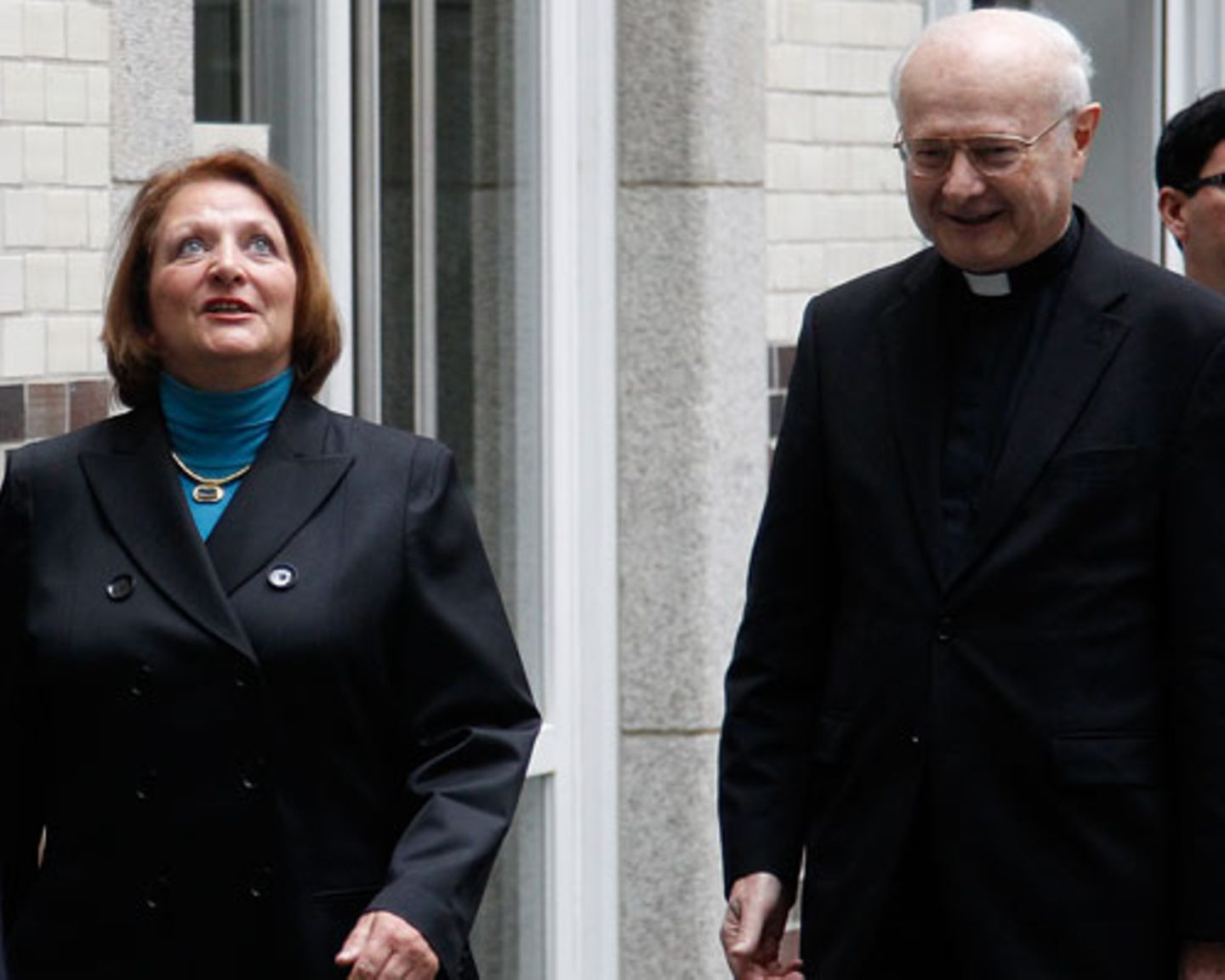Ex-Federal Minister of Justice, "The Churches know very well that employees have been guilty"
Ex-Federal Minister of Justice on abuse allegations
Leutheusser-Schnarrenberger: "The churches know very well that employees have been guilty".
After the allegations of abuse in the Catholic Church became known, the former Federal Minister of Justice, Sabine Leutheusser-Schnarrenberger, called early on for the Churches not to be left to deal with the matter on their own.
Former Federal Minister of Justice Sabine Leutheusser-Schnarrenberger is disappointed with the way the abuse cases in the Catholic Church are being dealt with.
When the abuse cases became known in 2010, Sabine Leutheusser-Schnarrenberger (FDP), as Federal Minister of Justice, opposed leaving the Catholic Church to deal with them on their own. She clashed with Bishop Robert Zollitsch. Today she sees herself vindicated.
See Archbishop gives Federal Justice Minister 24 hours to retract comments
In 2010, as Federal Minister of Justice, you questioned the Catholic Church's fidelity to the law in matters of sexual abuse and her willingness to come to terms with it. How did you experience the escalation at that time and do you see your view confirmed today, after the publication of the abuse report in the Archdiocese of Freiburg?
At the time, I pointed out a self-evident fact. In a democratic constitutional state, the rules, especially the provisions of criminal law and the competence of the Public Prosecutor's Office to investigate, apply to all institutions. At the time, I was appropriately astonished by the exaggeration.
Archbishop Robert Zollitsch gave you an ultimatum at the time that you had to withdraw your criticism of the Church within 24 hours. Was it a mistake for the politicians to leave the Church alone for so long and not to press for the establishment of a State Commission to deal with the matter? Would it be high time for that today at the latest?
There was and is a reappraisal. The office of the Independent Commissioner on Child Sexual Abuse has been working very intensively for several years and then numerous internal church investigations as well as law firms have dealt with the reappraisal in dioceses and convent schools and are still working in some cases today. The great expectations of a state truth commission could probably not be met by an additional state commission because it would lack the legal instruments.
So what do you recommend?
I have the impression that we now know a relatively great deal about the cases of abuse in the churches, but still not all the necessary consequences have been drawn. Why aren't the public prosecutors investigating these cases more intensively - the necessary initial suspicion is often given? Do they lack access to the files? How can the victims in cases that are already time-barred be given more support, for example in suing for compensation for pain and suffering?
What specifically do you demand from the churches?
The Churches know very well that staff members were guilty, but only a few priests were removed from office. Many things should have been done faster and better in the process of coming to terms with the past. It is now up to the church institutions not only to apologise, but to acknowledge the deeds that happened and to better compensate the victims financially for the injustice they suffered.
Should the state curtail the rights of the Catholic Church more?
That is not so easy. The current rules in state church law are the result of a long process of negotiation dating back to the creation of the Weimar Reich Constitution in 1919. The churches' right to self-determination is the key here, and there were and are good reasons for this. This right of self-determination superficially concerns doctrines of faith. In a free constitutional state, they can never be the subject of legal evaluation or review.
But?
Beyond that, however, religious communities must "order and administer their affairs within the bounds of the laws that apply to all". These are, in particular, norms of criminal law. Of course, churches and religious communities are thus fully bound by criminal law.
How then can the state ensure that the Catholic Church abides by the applicable law?
By having the state investigative authorities consistently follow up on leads. In addition to investigating cases of abuse, the criminal offence of obstruction of justice can also be looked at more closely. Those who "only" allow files to disappear in order to cover up the deeds of others can sometimes be liable to prosecution.
According to the report, Zollitsch withheld files from the Public Prosecutor's Office at the time and apparently wanted to protect perpetrators from possible investigations. What criminal consequences should his behaviour have?
It is up to the investigating authorities and the judiciary to decide that. I have no insight into ongoing investigations, nor can I evaluate them. However, it would be desirable if current and former dignitaries did not continue to close their minds to the process of coming to terms with the past, admitted mistakes and supported the victims.










.jpeg)

Comments